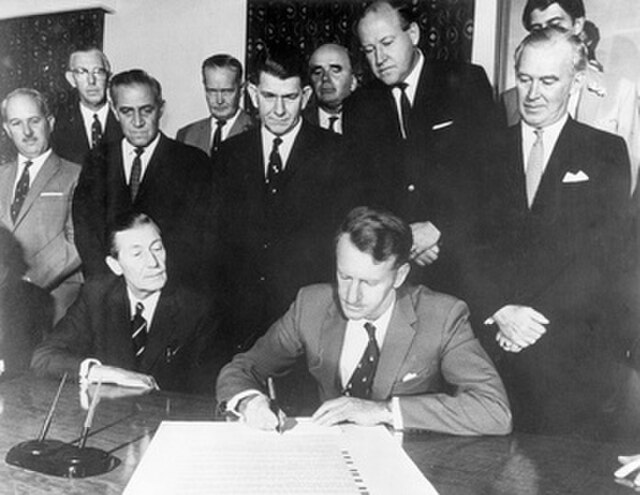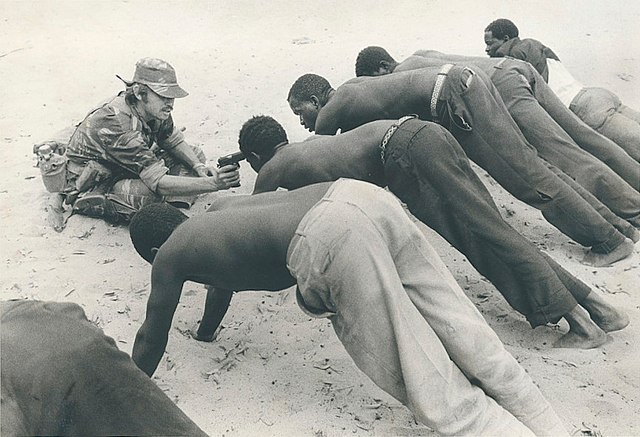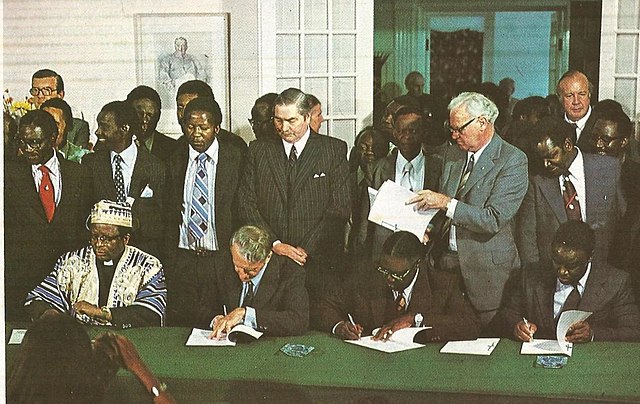Rhodesia's Unilateral Declaration of Independence
Rhodesia's Unilateral Declaration of Independence (UDI) was a statement adopted by the Cabinet of Rhodesia on 11 November 1965, announcing that Rhodesia a British territory in southern Africa that had governed itself since 1923, now regarded itself as an independent sovereign state. The culmination of a protracted dispute between the British and Rhodesian governments regarding the terms under which the latter could become fully independent, it was the first unilateral break from the United Kingdom by one of its colonies since the United States Declaration of Independence in 1776. The UK, the Commonwealth, and the United Nations all deemed Rhodesia's UDI illegal, and economic sanctions, the first in the UN's history, were imposed on the breakaway colony. Amid near-complete international isolation, Rhodesia continued as an unrecognised state with the assistance of South Africa and Portugal.
A scan of the proclamation document
Ian Smith replaced Winston Field as Southern Rhodesian Prime Minister in April 1964, and pledged to challenge Britain on independence.
UK Prime Minister Sir Alec Douglas-Home met Smith in London in September 1964.
Harold Wilson replaced Douglas-Home in October 1964, and proved a formidable opponent of Smith.
Rhodesia, officially from 1970 the Republic of Rhodesia, was an unrecognised state in Southern Africa from 1965 to 1979, equivalent in territory to modern Zimbabwe. Rhodesia was the de facto successor state to the British colony of Southern Rhodesia, which had been self-governing since achieving responsible government in 1923. A landlocked nation, Rhodesia was bordered by Botswana to the southwest, Mozambique to the east, South Africa to the south, and Zambia to the northwest. From 1965 to 1979, Rhodesia was one of two independent states on the African continent governed by a white minority of European descent and culture, the other being South Africa.
Ian Smith signing the Unilateral Declaration of Independence
Rhodesian soldier interrogating villagers in late 1977 at gunpoint. This photograph would become one of the most enduring images of the Bush War.
Signing of the Rhodesian Internal Settlement (from left: Bishop Abel Muzorewa, Ian Smith, Jeremiah Chirau and Ndabaningi Sithole)
Troops of the Rhodesian Armoured Corps in 1979








